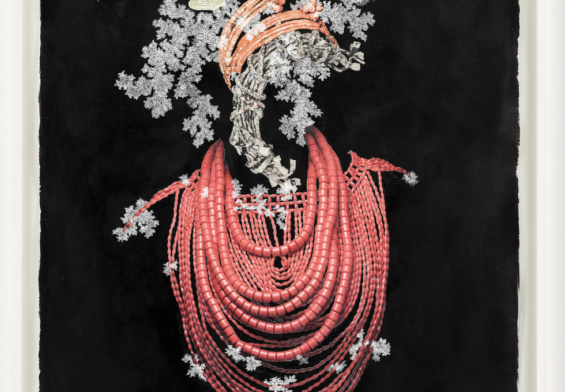This post first appeared on thechristianmindng.org

A recent study by the Barna Group highlights how Christians in the US are largely influenced by other worldviews such as Secular Humanism, Marxism, and the New Age. The figures are quite saddening. 26% of Christians surveyed believe that “all people pray to the same god or spirit, no matter what name they use for that spiritual being.” 32% believe the popular notion that “if you do good, you will receive good, and if you do bad, you will receive bad.” And according to the survey, 20% of practicing Christians believe that “meaning and purpose comes from working hard to earn as much as possible so you can make the most of life,” which comes from a secular or materialist worldview.
Reflecting on these statistics brought to my mind that Christians here in Nigeria, and much of modern Africa, face a similar problem. The Christian is hemmed in by 2 worldviews which, often unconsciously, shape her thoughts, beliefs, and decisions on different aspects of life. These two worldviews, outlooks or perspectives are Secular Humanism and the African Traditional Worldview.
It is necessary to state at the outset that these outlooks are not false in their entirety; like most worldviews, they contain elements which are true. However, as a perspective on life and reality, they distort the truth as revealed by God in both creation and revelation. As a result, they are inadequate in helping us know the truth, appreciate beauty, and live right.
Secular humanism controls our political and educational institutions. It is the viewpoint which largely drives businesses and the corporate world, the workings of the government, Nigeria’s relations with other nations, and public affairs.
This outlook or perspective considers all life from the standpoint of humans and their welfare. While it is praiseworthy and essential to take humanity’s welfare seriously, the problem with Secular humanism is that it sees humans as autonomous. No higher authority, no higher being. In other societies, especially in Europe and North America, it is often allied with Naturalism, the philosophical view that the physical universe is all that exists, or with Materialism, which is the belief that only physical matter exists. Naturalism is not so strong as a cultural force in Africa, however, because we are largely a religious people; we believe deeply in the supernatural world of God, angels, and spirits. However, we still think, act, and make decisions from a secular viewpoint. Even though we do not deny the existence of God or the spirit realm, it plays no factor in the key issues of society or government. Society thinks in terms of the well-being of man but hardly considers what God’s will is in any situation. I understand that secularism can seem like a practical way to handle religious diversity in our modern society. But this is far from being a solution. For the true import of secularism is to ultimately eradicate meaning, truth, and values. In a world where man is the ultimate point of reference, there is no true basis for any of these.
Secular humanism emphasizes that one must look at life rationally. But rationality is implied to mean a search for truth based only on reason and experience. There is no place for Revelation. This was precisely the doctrine of the European movement known as the Enlightenment. It did away with tradition, particularly Christian tradition, and has blossomed over the centuries into the social and cultural decay observed and experienced all over the Western world.
The African traditional worldview influences personal and family life. We find it in the entertainment media (Nollywood movies and music). It influences churches and other socio-religious institutions. It also shapes public affairs significantly along with the secular humanist outlook.
As the name implies, it is an outlook common to African societies, so it is quite broad with differences from culture to culture. However, there are common elements. The African worldview is characterized by a strong belief in the spiritual realm. And this, I believe, coupled with the influence of Islam and Christianity, has helped restrain the full-blown adoption of Secularism as a worldview in Africa. Africans believe in God, and they also believe in a world of spiritual beings, both good and evil. God is not approached directly, except through diverse mediating gods who derive their power from him. There is a specialization within this pantheon, as you have different deities attached to various elements or natural features. Among my tribe, you have a god of lightning, one of iron, others over different rivers (e.g. Osun). Though these deities are said to be mediating beings, they actually function in that role of God. The adherent depends on it, calls upon it when in trouble and placates it with a sacrifice when offended. And they all have their devoted priests and priestesses.
Under this outlook, the spiritual world is seen as very real. Incidents considered to be natural by the ‘educated’ or ‘modern’ person could be traced to some activity or influence from the spiritual realm. A road accident, a child suddenly falling ill, business decline, are a sample of cases that could be explained by reference to supernatural forces.
Also, this worldview emphasizes community as against mere individual accomplishment. Life is lived in community. A person finds his purpose and significance by obeying the will of the gods and participating in the life of the community. This is why the role of one’s family and relatives matters tremendously in Nigeria and Africa. You should maintain good relations with your relatives and take good care of them. This principle, while praiseworthy and largely biblical, can also foster moral corruption. We can close our eyes to evil where it is committed by a ‘brother’ or ‘uncle’. This is why a society could honour an ex-convict who embezzled public funds with a chieftaincy title or sing the praises of treasury looters and ritualists simply because they built them a road.
Life under the traditional worldview is one of perpetual fear. There are all kinds of evil forces at work, and one must ever be on guard to protect oneself from them.
Both views dishonour God for they fail to tell the truth about Him or the world he has made. And if we seek to be faithful to Him as our Lord and King, we must steer clear of the influence of these 2 perspectives. Man is not God, and neither is God aloof or distant. Our universe is not autonomous; it is held and sustained by God himself. Our universe is also not subject to the movings of an impersonal fate nor the will of some unpredictable spirits. God reigns and his rule extends over all he has made. We can know him; in fact, He created us into a relationship of love. And He wants to reestablish this connection. Hence the work of redemption. A universe in which man has no God may look like a free and blessed place; but with much reflection and painful experience, we find that is
A universe in which man has no God may look like a free and blessed place; but with much reflection and painful experience, we find that it is a world without meaning, truth and hope. And that can truly be miserable. On the other hand, a universe filled with different powerful but limited gods, with a Supreme Being who is distant and aloof, with a universe ever at the mercy of evil spirits, is hardly better. The Christian worldview, with its focus on the good news of redemption of God’s creation, supplies the truth, meaning, and joy which the human heart deeply craves. It comprehensively deals with every fact or experience of life and provides meaning for it within its grand narrative of Creation, Fall, Redemption, and Restoration.
Therefore, the believer must continually be on her guard for such ideas and beliefs which emanate from a false view of life. She must continually renew her mind and keep it conformed to God’s revelation (cf. Rom. 12:1). As the light of the world and the salt of the earth, we cannot allow ourselves to be swept along by untrue ideas, however popular they currently are.



